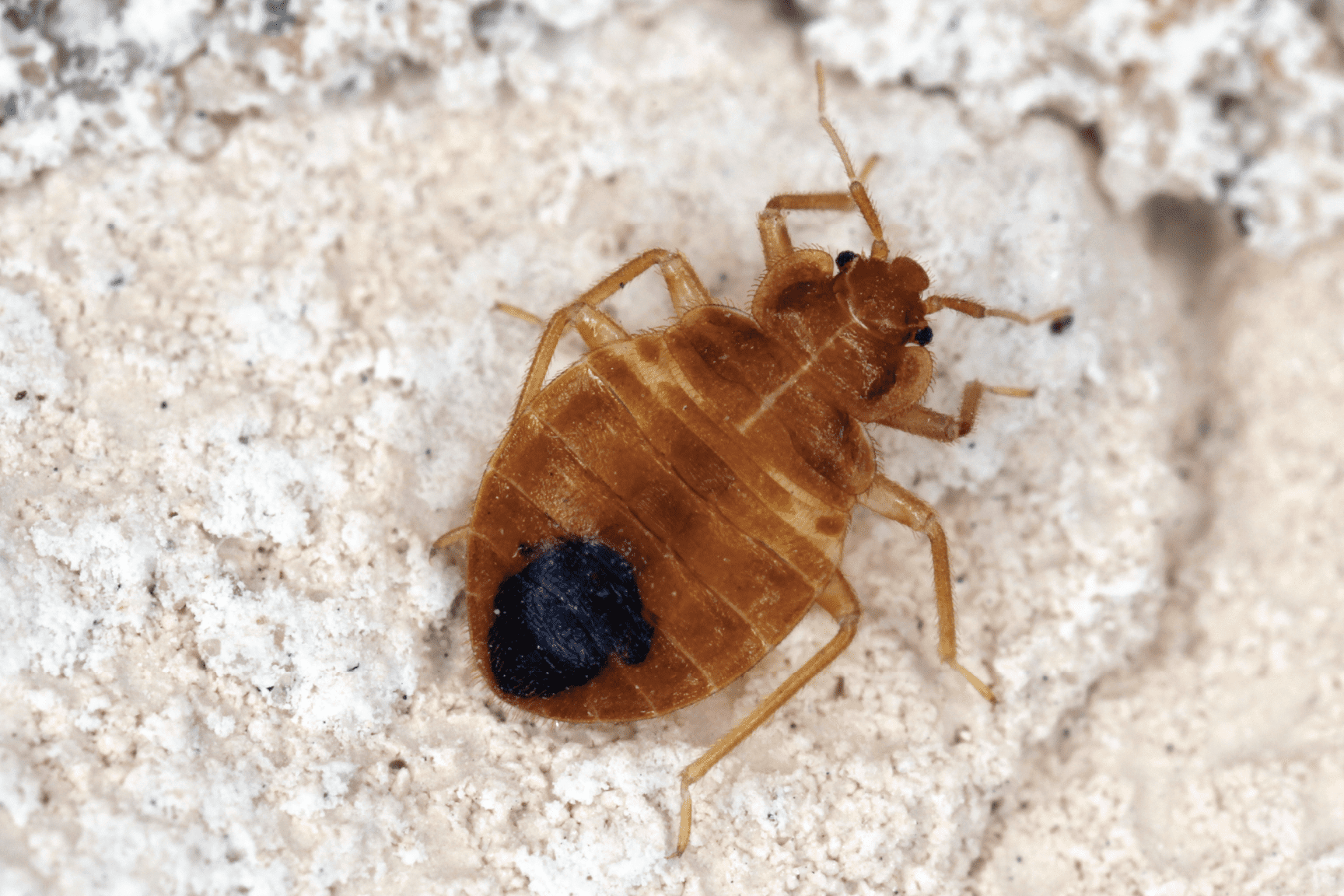Kings Bed Insect Exterminator Cincinnati: Pro Pest Solutions
Wiki Article
A Failure of the Various Kinds Of Bug Control Solutions
In the world of insect control, a plethora of techniques exist to attend to and fight the presence of undesirable animals. From the standard use of chemical pesticides to extra cutting-edge biological control options, each approach supplies distinct benefits and restrictions. As we navigate through the diverse landscape of bug control options, comprehending the complexities of each method ends up being vital in figuring out the most efficient strategy. Remain tuned as we check out the nuanced world of insect control strategies and discover exactly how each type plays an one-of-a-kind role in securing our settings.Chemical Pesticides
Chemical chemicals are typically utilized in insect control to effectively remove a vast array of insects and various other pests. These pesticides function by targeting the anxious system of the insects, disrupting their typical features, and ultimately bring about their death. Using chemical pesticides has been a staple in the pest control industry for years because of their effectiveness and fast results.
Nonetheless, it is necessary to use chemical pesticides with caution due to their prospective damaging results on the setting and non-target types. Inappropriate application or overuse of these pesticides can cause contamination, damage to helpful pests, and resistance growth in bug populations. It is critical to follow security standards and guidelines when using chemical pesticides for parasite control.
Biological Control Techniques
Taking into consideration the prospective environmental impacts and risks linked with chemical pesticides, organic control methods offer a more lasting strategy to handling parasite populaces. Biological control entails the use of natural enemies, such as pathogens, bloodsuckers, and predators, to reduce bug populations. This approach is commonly much more targeted, impacting just the specific pest species while minimizing injury to beneficial bugs, human beings, and the atmosphere.

When established, natural opponents can help control pest populations constantly without the requirement for duplicated applications of chemicals. In addition, organic control is commonly a lot more cost-effective and can help decrease chemical resistance in insect populations over time.

Mechanical Pest Control
Mechanical pest control involves the physical control or removal of pests to handle their populations successfully. This technique is frequently utilized in combination with various other pest control methods for comprehensive parasite management. One usual instance of mechanical parasite control is utilizing catches to capture rats or pests. These catches can be established up in critical locations where insects are known to dwell, aiding to decrease their numbers.
An additional mechanical technique is the usage of obstacles such as screens, fencings, or internet to obstruct bugs from entering details locations. By literally protecting against bugs from accessing a place, the possibility of infestations or damage can be considerably lowered. Furthermore, hand-operated techniques like handpicking insects off plants or structures can be reliable for smaller-scale invasions.
While mechanical parasite control approaches can be labor-intensive, they provide a non-chemical alternative that can be eco friendly and sustainable. By targeting bugs directly, mechanical control techniques can aid keep parasite populations in check without relying upon chemicals.
All-natural Remedies
Making use of natural treatments for pest control provides a environment-friendly and sustainable technique to taking care of parasite populations without considering chemical treatments. Natural solutions include making use of compounds originated from plants, minerals, or various other naturally happening sources to prevent or get rid of bugs. Planting specific natural herbs like basil, mint, or lavender around your residential or commercial property can repel pests due to their solid aromas. check that Diatomaceous earth, a powder made from fossilized algae, can be utilized to fight pests like ants, cockroaches, and bed insects by dehydrating their exoskeletons.In addition, important oils such as tea tree oil or neem contractors termite oil have insecticidal residential or commercial properties that can effectively regulate parasites while being secure for the atmosphere. One more natural treatment is presenting useful bugs like ladybugs or hoping mantises to your garden to victimize hazardous bugs. By including these natural options right into insect administration strategies, individuals can reduce their reliance on synthetic chemicals and promote a healthier, more balanced ecological community.
Integrated Bug Monitoring
Integrated Insect Administration (IPM) is an extensive technique that integrates numerous techniques to efficiently control pest populations while reducing threats to human wellness and the setting. IPM includes the combination of numerous pest control methods such as biological control, habitat manipulation, modification of cultural methods, and making use of immune plant selections. By utilizing a mix of these methods, IPM aims to lower dependence on chemical pesticides, which can have adverse influences on environments and human wellness.One key element of IPM is the emphasis on avoidance. By carrying out measures to avoid bug infestations prior to they happen, such as maintaining correct hygiene and securing access factors, the demand for reactive bug control actions is decreased. Monitoring and regular assessments play an important duty in IPM, permitting early discovery of bug concerns and punctual intervention.
Final Thought
In final thought, the numerous kinds of bug control options use a range of options for effectively managing parasite problems. Organic control approaches use all-natural killers to regulate bugs. Integrated Insect Monitoring incorporates multiple strategies for a holistic approach to pest control.Chemical pesticides are commonly utilized in bug control to efficiently get rid of a wide variety of bugs and other bugs.Mechanical bug control includes the physical control or removal of insects to manage their populaces efficiently (Kings pest control Cincinnati Ohio).Making use of natural treatments for insect control provides a lasting and environmentally friendly method to taking care of pest populations these details without resorting to chemical treatments.Integrated Parasite Monitoring (IPM) is a thorough strategy that combines numerous approaches to effectively manage pest populations while reducing risks to human wellness and the atmosphere.In verdict, the numerous types of bug control solutions provide a variety of choices for effectively handling bug infestations
Report this wiki page